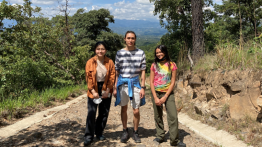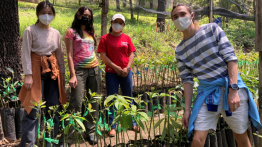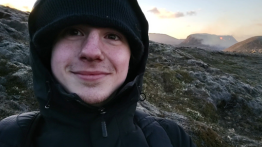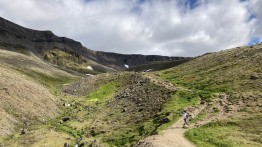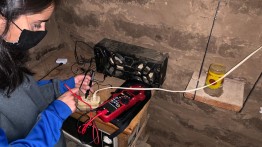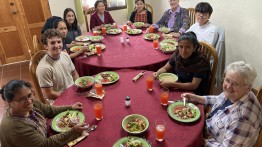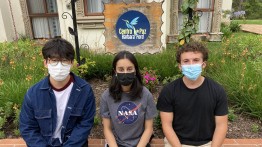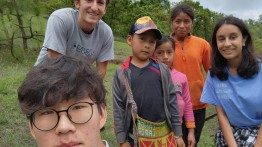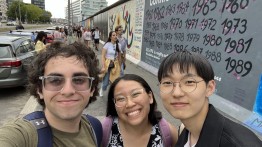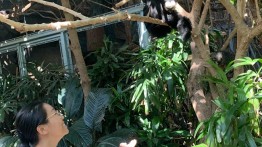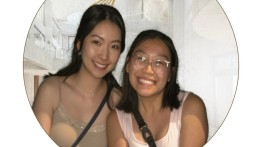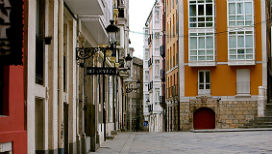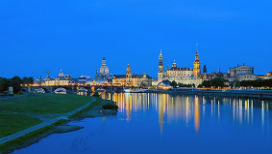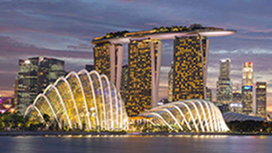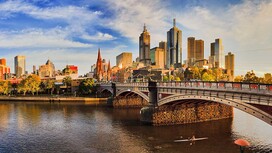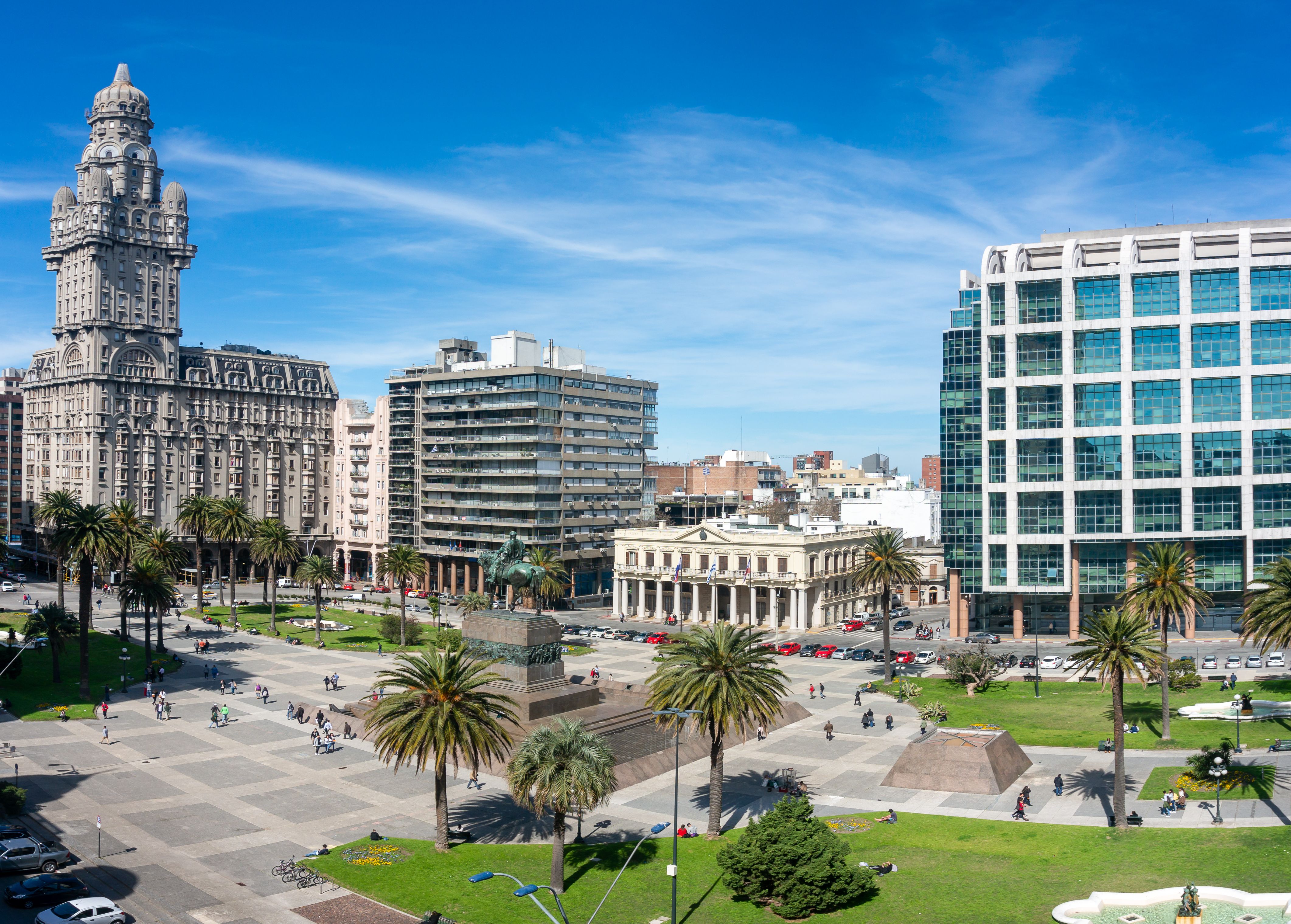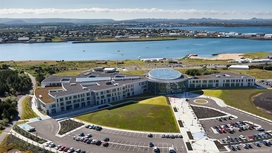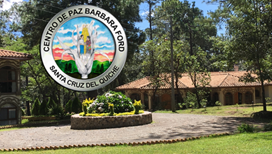Summer Study Abroad Program
Why study abroad?
As discussed in the Albert Nerken School of Engineering's Strategic Plan, engineers work in an increasingly global economy. Much of the global economic growth will come from countries outside North America. Many large companies have a global workforce, with multi-cultural engineering teams comprising members in diverse geographic locations. Successful engineering leaders will not only need deep disciplinary knowledge, but also modern professional skills. This is sometimes referred to as a “T-shaped” individual, who combines a deep knowledge of a single field of interest with other broad abilities—the so-called soft skills and a firm grounding in collaboration.
The summer study abroad experience is a 6–8-week opportunity to develop as a "T-shaped" engineer: participating students work on an engineering research or design project for a non-US supervisor, in a foreign country, immersed in a foreign culture. Participants are encouraged to sightsee and take part in the cultural life of the host city. Weekend trips are fine during the program if they do not interfere with one's study. Students who want to travel for a week or more should do so after their study abroad program is finished. By the end of the summer, many have traveled the European and Asian continents.
What are the opportunities?
Students may conduct research at universities in Dresden or Karlsruhe, Germany; in Burgos or Madrid, Spain; in Singapore; in Montevideo, Uruguay; or Reykjavik, Iceland. There are humanitarian engineering projects in Santa Cruz del Quiche in Guatemala with the Barbara Ford Peace Building Center, and in Bosnia (in conjunction with the BH Futures Foundation).
Who is eligible?
Summer study abroad participants serve as ambassadors from Cooper to these international communities. Study abroad is a competitive program for students who:
- have completed their second or third year of study at Cooper
- have a cumulative GPA of at least 3.0 and are not currently on academic probation
- are in good disciplinary standing (no current active findings of responsibility for academic integrity, Code of Conduct, other student conduct violations). Applicants must verify their good standing during the application process, and this will be verified by the Office of Student Affairs and academic program offices.
How to apply?
Acceptance is a two-step process. The first step is to apply to the Albert Nerken School of Engineering Dean’s Office. Application forms and deadlines for the summer of 2026 are due January 9, 2026. The summer 2026 application instructions can be found HERE (application closed).
Since each international organization has a limited number of slots for Cooper students, there may be more applicants than space.* The Associate Dean overseeing the summer abroad program will determine the most competitive candidates for each location. Candidates who are fully qualified but not competitive for their first-choice location will be considered for their second-choice location, and so on.
Applicants who meet the eligibility requirements and are recommended by Cooper will be notified of the next step. In some cases, the student will be asked to apply directly to the foreign institution and in others, the Deans' office will forward the Cooper application to the host institution. The foreign institution has the authority to decline admission to a student, even if Cooper recommends them.
Participants must spend six to eight weeks conducting research at the foreign institution (exclusive of any sightseeing before or after the program). Students will be enrolled in EID 300 for the summer. A student may earn up to six academic credits: three for a technical elective and three for a free elective. Note that the Civil Engineering program does not have free electives, so only three credits count towards that degree.
Upon return to Cooper, each student must submit to Associate Dean for Educational Innovation, Lisa A. Shay, two reports on their activities and an evaluation form. The first report describes their research activities (the “technical report”) and the second (the “cultural report”) is a thoughtful reflection on their experience in the country. The technical report should be a conference-quality paper in content, organization, and grammar. Submission of the technical report to a peer-reviewed research publication forum (workshop/conference/journal) is strongly encouraged. See the EID 300 syllabus for specific requirements for each paper.
Students are advised to check the academic calendar of their host institution when proposing dates of study and should plan to align their experience with the host institution's schedule. If they are working on a project with students from the host institution, those students will most likely end their work at the end of the semester, and it's unlikely there will be much work to do on the project after the term ends. Also, be mindful that most of Europe goes on vacation in August, and faculty availability could be quite limited at that time.
What are the financial considerations?
Students who are accepted for the Summer Study Abroad program will be eligible for a Dean's Office Summer Abroad Cultural Immersion Fellowship which will cover the cost of travel, accommodations and program-related fees. The number of Fellowships awarded will not exceed the number of positions allocated to each program, based on the partnership agreements. Admission to the Summer Study Abroad program and awarding of Fellowships will be at the discretion of Associate Dean Lisa Shay. Tuition will not be charged for EID 300, but students are responsible for registration fees. This Fellowship is only available once during a student's enrollment at Cooper. Students who wish to participate in a second summer abroad experience may apply in a subsequent year and may be accepted if space permits, but they will not be eligible for the Fellowship nor will they earn EID 300 credit.
Our hope is that students will be able to fully participate in the Summer Study Abroad program in summer 2026. However, we will follow all recommendations by Cooper Union's leadership, as well as applicable governmental policies (both US and foreign). In light of Covid-19, some programs may decide to offer their summer study abroad experience virtually. Please note that the six credits offered for EID 300 will not be awarded for virtual summer programs, nor will students be required to submit the final reports. Students may still apply to participate in these programs and still must be nominated by Cooper Union. Students in virtual programs are not eligible for the Dean’s Office Summer Abroad Cultural Immersion Fellowships.
Need additional information?
For more information about the Summer Study Abroad program, please contact Associate Dean of Educational Innovation, Lisa A. Shay.
For a tentative Timeline for study abroad, click here. You can find a FAQ here.
Partnership Institutions
Spain
|
Germany
|
Singapore
|
Bosnia
|
Uruguay |
Iceland
|
Faculty-led Programs
Guatemala
|

